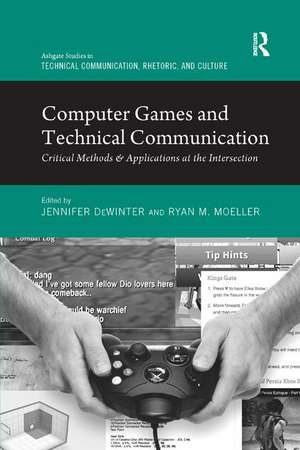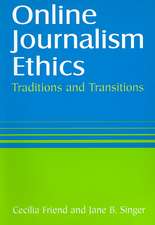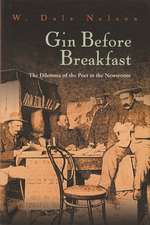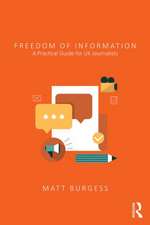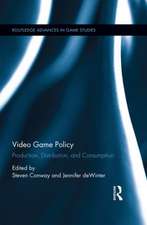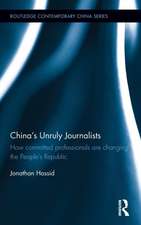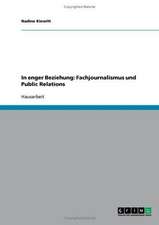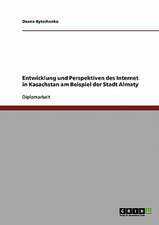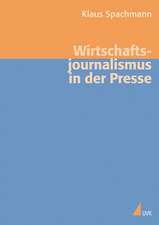Computer Games and Technical Communication: Critical Methods and Applications at the Intersection: Routledge Studies in Technical Communication, Rhetoric, and Culture
Autor Jennifer deWinter, Ryan M. Moelleren Limba Engleză Paperback – 7 feb 2017
| Toate formatele și edițiile | Preț | Express |
|---|---|---|
| Paperback (1) | 390.37 lei 6-8 săpt. | |
| Taylor & Francis – 7 feb 2017 | 390.37 lei 6-8 săpt. | |
| Hardback (1) | 1119.45 lei 6-8 săpt. | |
| Taylor & Francis – 28 oct 2014 | 1119.45 lei 6-8 săpt. |
Preț: 390.37 lei
Nou
Puncte Express: 586
Preț estimativ în valută:
74.70€ • 78.09$ • 63.13£
74.70€ • 78.09$ • 63.13£
Carte tipărită la comandă
Livrare economică 07-21 martie
Preluare comenzi: 021 569.72.76
Specificații
ISBN-13: 9781138710207
ISBN-10: 1138710202
Pagini: 334
Dimensiuni: 156 x 234 x 18 mm
Greutate: 0.48 kg
Ediția:1
Editura: Taylor & Francis
Colecția Routledge
Seria Routledge Studies in Technical Communication, Rhetoric, and Culture
Locul publicării:Oxford, United Kingdom
ISBN-10: 1138710202
Pagini: 334
Dimensiuni: 156 x 234 x 18 mm
Greutate: 0.48 kg
Ediția:1
Editura: Taylor & Francis
Colecția Routledge
Seria Routledge Studies in Technical Communication, Rhetoric, and Culture
Locul publicării:Oxford, United Kingdom
Public țintă
Postgraduate and UndergraduateNotă biografică
Jennifer deWinter is Assistant Professor of Rhetoric and associated faculty in the Interactive Media and Game Development program at Worcester Polytechnic Institute, USA, and Ryan M. Moeller is Associate Professor of English at Utah State University, USA.
Recenzii
'This collection will capture the attention of even those scholars who are non-gamers. The chapters show the importance of gaming to technical communication professionals as well as how the pedagogy of gaming might benefit the technical communication classroom.' Barry Maid, Arizona State University, USA 'Computer Games and Technical Communication: Critical Methods and Applications at the Intersection successfully fills the gap in the academic scholarship while also offering practitioners suggestions to tap into this booming market.' Technical Communication
Cuprins
Introduction; I: Connecting Professional and Technical Communication and Game Studies; 1: It's All Fun and Games Until Someone Pulls Out a Manual: Finding a Role for Technical Communicators in the Game Industry; 2: Come Out Playing: Computer Games and the Discursive Practices of Gender, Sex, and Sexuality 1; II: Industry Documentation and Procedural Guides; 3: Rendering Novelty Mundane: Technical Manuals in the Golden Age of Coin-Op Computer Games; 4: Just Playing Around: From Procedural Manuals to In-Game Training; 5: “It Wasn't Intended to be an Instruction Manual”: Revisiting Ethics of “Objective” Technical Communication in Gaming Manuals; III: Getting the Player Involved; 6: Game Design Documents: Changing Production Models, Changing Demands; 7: Developing a Testing Method for Dynamic Narrative; 8: Psyche and Eros: Rhetorics of Secrecy and Disclosure in Game Developer–Fan Relations; 9: Patching as Design Rhetoric: Tracing the Framing and Delivery of Iterative Content Documentation in Online Games; 10: “You Are How You Play”: Privacy Policies and Data Mining in Social Networking Games; 11: Working at Play: Modding, Revelation, and Transformation in the Technical Communication Classroom; IV: Games in the Professional and Technical Communication Classroom; 12: Inhabiting Professional Writing: Exploring Rhetoric, Play, and Community in Second Life; 13: How World of Warcraft Could Save Your Classroom: Teaching Technical Communication through the Social Practices of MMORPGs; 14: The Three D's of Procedural Literacy: Developing, Demonstrating, and Documenting Layered Literacies with Valve's Steam for Schools; 15: Questing through Class: Gamification in the Professional Writing Classroom; 16: From Realism to Reality: A Postmortem of a Game Design Project in a Client-Based Technical Communication Course
Descriere
Taking as its point of departure the fundamental observation that games are both technical and symbolic, this collection investigates the multiple intersections between the study of computer games and the discipline of technical and professional writing. Contributors engage with questions related to workplace communities and gamic simulations; industry documentation; manuals, gameplay, and ethics; training, testing, and number crunching; and the work of games and gamifying work.
